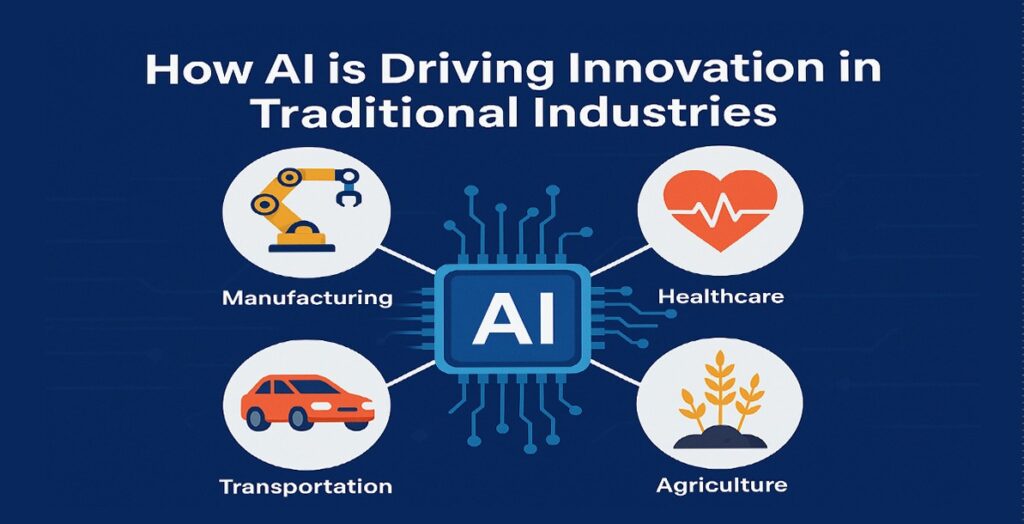* How AI is Driving Innovation in Traditional Industries
In today’s fast-changing digital world, AI in traditional industries is no longer a futuristic concept — it’s a present-day revolution. From old-school factories to rural farms, artificial intelligence is quietly but powerfully transforming how work gets done.

* Artificial Intelligence Automation: Redefining Routine Work
One of the biggest advantages of AI is artificial intelligence automation. Tasks that once required hours of manual labor can now be done in minutes. For example, inventory management in warehouses, data entry in banks, or even sorting produce on a farm — all can be handled by intelligent machines. This not only saves time but also improves accuracy and consistency across operations.
* Improving Efficiency with AI: Smarter, Faster, Better
Companies are now focusing on improving efficiency with AI. AI-powered tools can analyze massive amounts of data in real-time, helping businesses make quick, data-driven decisions. Predictive maintenance in manufacturing or AI-based customer support in retail are just a few examples of how AI is helping businesses respond faster, reduce downtime, and deliver better services.
* AI in Manufacturing and Agriculture: A Quiet Revolution
The impact of AI in manufacturing and agriculture is especially remarkable. In manufacturing, robotic arms and machine learning algorithms ensure precise production and quality control. In agriculture, AI-powered drones and smart irrigation systems help monitor crop health, manage resources, and maximize yield — all while reducing waste and cost.
* Digital Transformation with AI: Preparing for the Future
Traditional industries are stepping into the future through digital transformation with AI. This means going beyond automation and embracing AI as a core part of business strategy. Whether it’s adopting AI chatbots in customer service or using AI analytics for supply chain optimization, companies that adapt will lead the market in the coming years.
* Final Thoughts
AI is not here to replace people — it’s here to empower them. By enhancing productivity, reducing errors, and creating new opportunities, artificial intelligence is giving traditional industries a new lease on life. The sooner businesses embrace it, the more prepared they’ll be for a smarter, more competitive future.